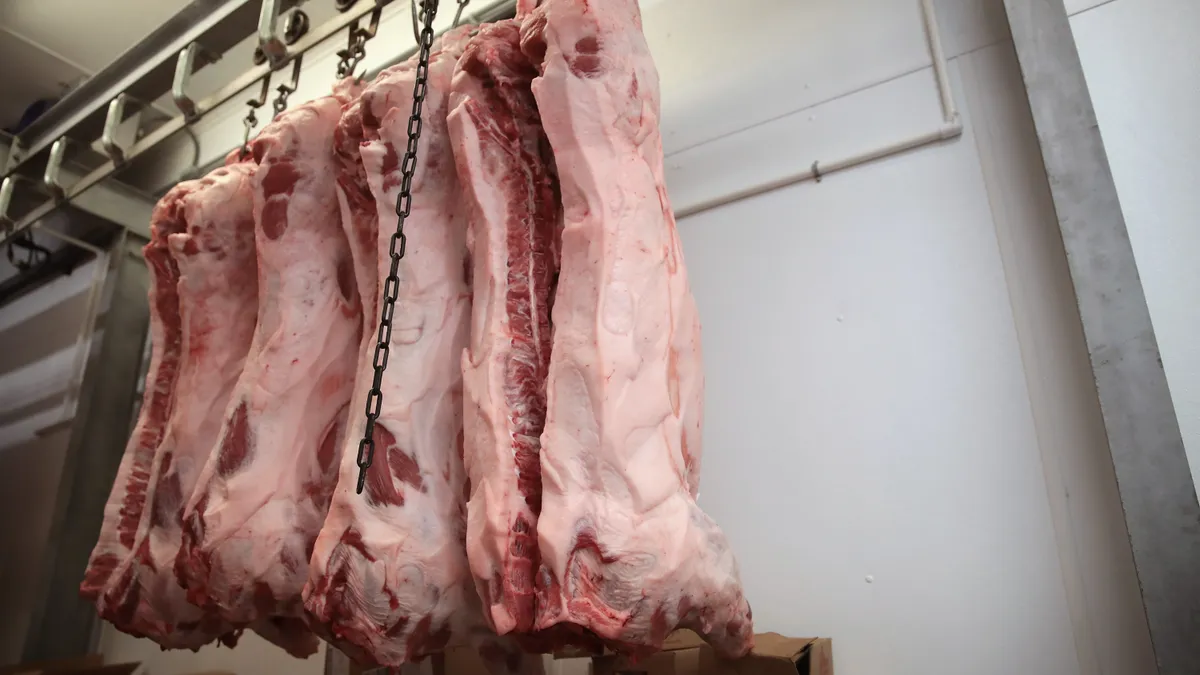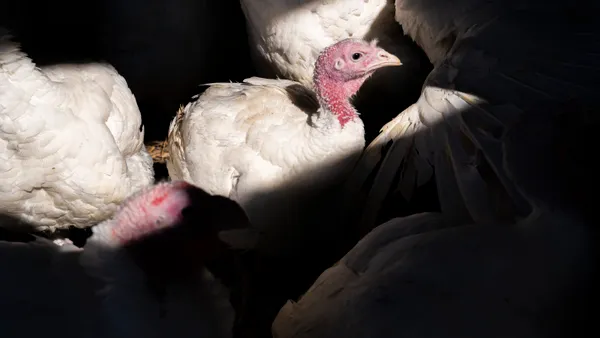Dive Brief:
- The U.S. Department of Agriculture extended a contentious pilot program allowing pork plants to run faster processing-line speeds for another year as the agency evaluates potential worker safety concerns.
- The USDA's Food Safety and Inspection Service said last week that pork processors involved in the time-limited trial can run line speeds faster than the 1,106 head per hour regulatory threshold until January 15, 2025.
- The department said the extension is necessary as it moves forward with a plan to study the impact on worker safety. Trial participants will be required to submit a range of relevant data and provide documentation verifying compliance with a worker safety agreement.
Dive Insight:
Meatpackers have looked to speed up processing lines to boost production while lowering costs, though their efforts have faced tough opposition from food safety and labor groups.
A court in 2021 established the 1,106 head per hour threshold after vacating a Trump administration provision that allowed processors to set their own maximum speeds. Since then, FSIS has allowed six pork processors to run higher line speeds under a time-based trial.
Food safety groups have warned that faster line speeds mean less time for inspectors to catch potential pathogens or contamination. Meanwhile, labor groups say sped-up lines bring worker safety risks and could lead to serious injury.
FSIS most recently extended its trial in December for 90 days after the agency determined there was not enough data "to evaluate the impact of increased line speeds on worker safety." The department is now again extending the pilot as it implements a new study to generate the necessary data.
Pork producers involved in the pilot represent more than 3% of harvest capacity, according to the National Pork Producers Council. Without the faster line speeds, those processors would have faced additional losses of nearly $10 a head in the first two quarters of 2024.
“We appreciate USDA and FSIS for listening to the pork industry and taking another step toward making permanent these increased line speeds,” NPPC President Scott Hays said in a statement. “These actions give pork producers more certainty in an uncertain time.”
Agriculture Secretary Tom Vilsack told lawmakers at a hearing last week that a similar pilot program within the poultry sector will also likely be extended. The poultry trial is expected to expire at the end of March.
"We want to make sure we get the right information about whether or not line speed actually does relate to increased injury," Vilsack said, adding that the trials are necessary to decide whether to make higher speeds permanent. "I am not interested in making decisions on this until I have all the facts. I don't have all the facts yet.”











